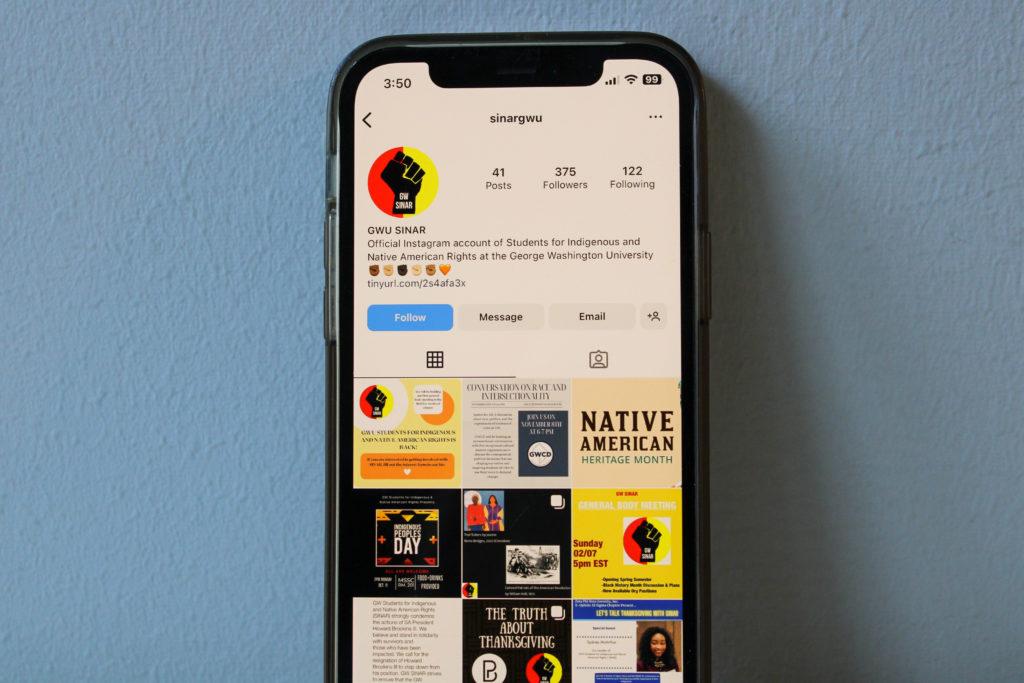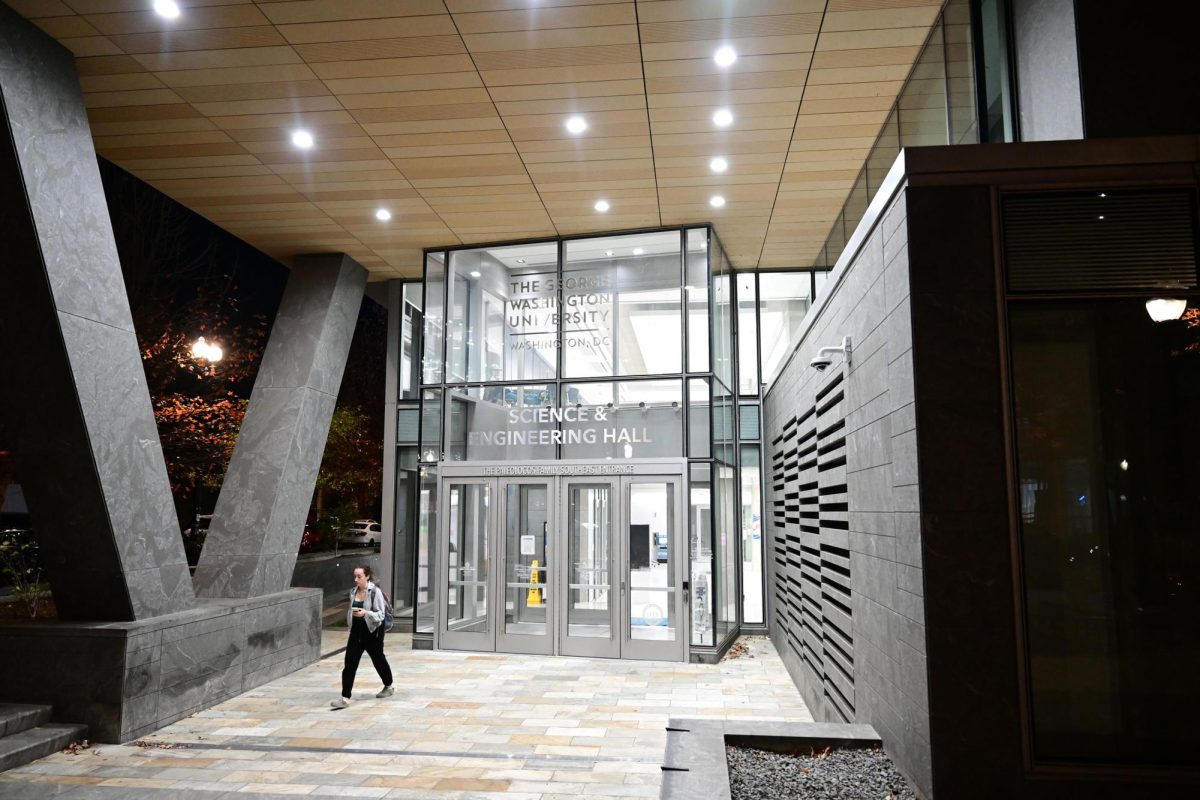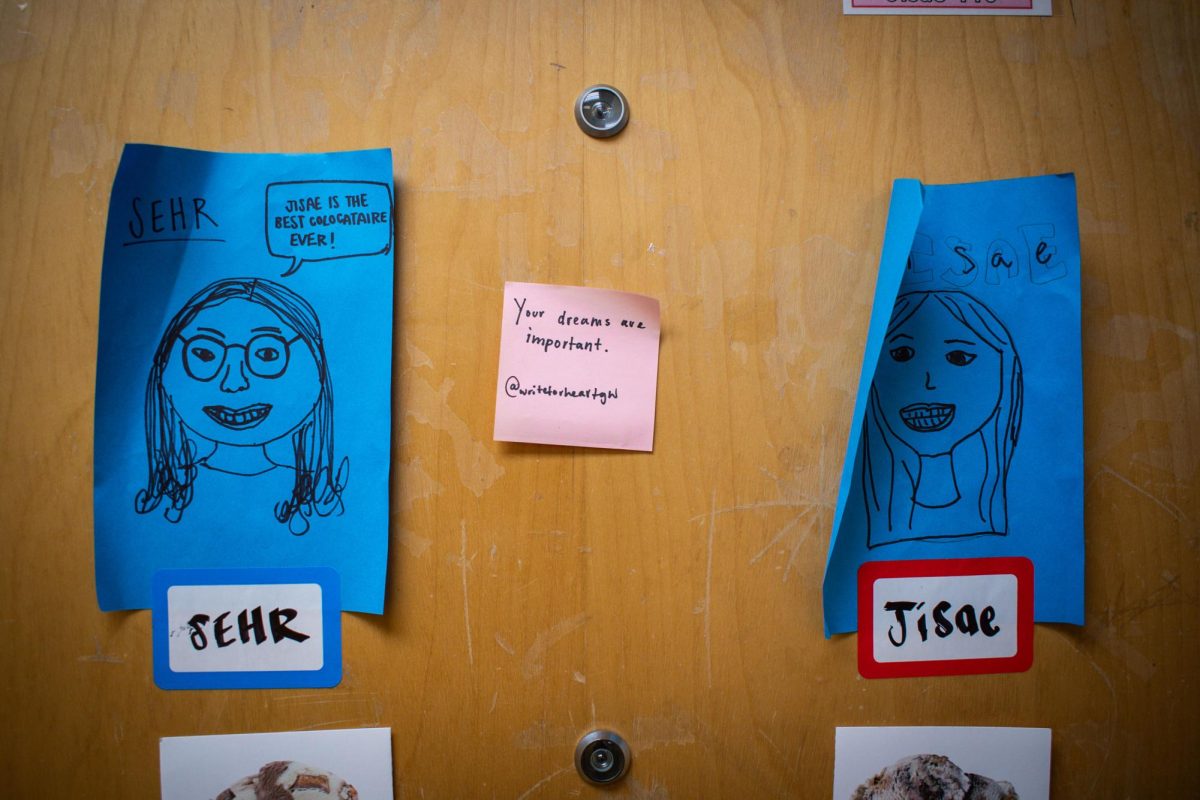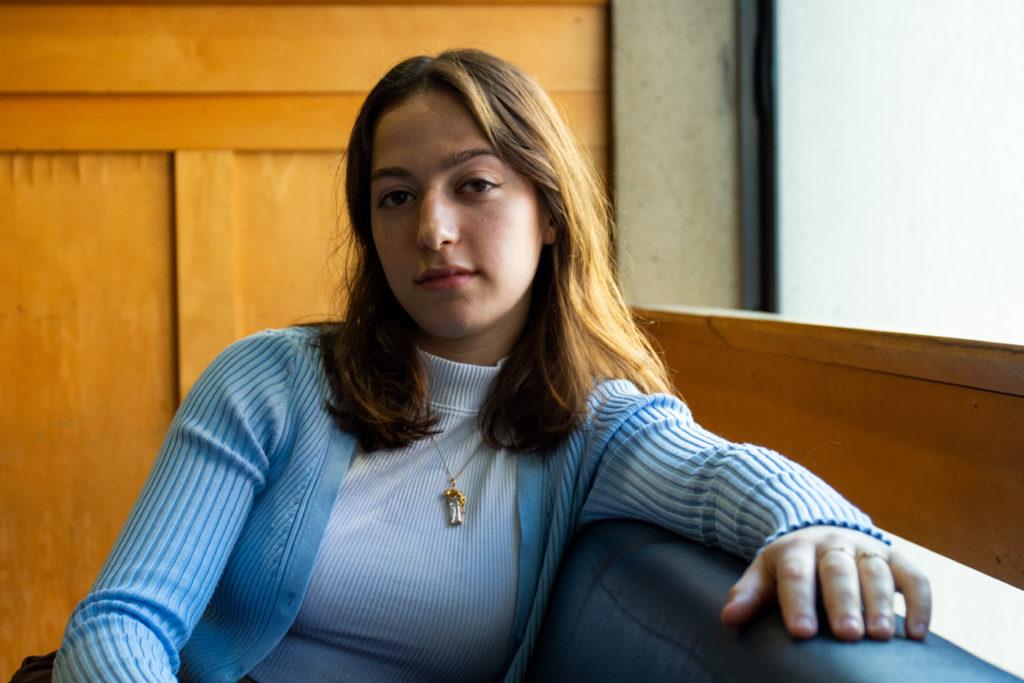A student organization dedicated to amplifying campus education and awareness about Native American rights and heritage will relaunch this semester following a year-long hiatus.
Students for Indigenous and Native American Rights, originally founded in 2017 before becoming inactive last school year due to a lack of central authority after remaining members graduated, returned as a student organization in November with a focus on Indigenous education, awareness and community at GW. SINAR leaders said they hope to host guest speakers like GW history professor David Silverman, book club discussions and heritage celebrations to achieve an improved understanding of Indigenous culture and issues like expanding health care and voting access in Tribal communities in 2023.
Senior Olivia Gower, a co-president of SINAR, said she joined the organization as a freshman in 2019 before taking a break in 2020 due to the pandemic. Gower and fellow co-president Riya Sharma revived SINAR during the fall 2022 semester after discussing their mutual interest in bringing Native American rights to the forefront of campus conversations at GW.
She said she searched for a way to continue involvement with SINAR when she returned to campus in the fall of 2021 but found the organization dormant.
“It just feels important to have that kind of microcosm that exists on this campus, especially in the city that we live in that is very politically driven, that is very politically active,” Gower said. “These are important issues in our world right now. And having that conversation happening within our school is really important.”
Gower said the organization hopes to lead several events over the next semester, like a guided tour of the National Museum of the American Indian and continuations of past SINAR projects, such as a petition to urge officials to include a land acknowledgement during GW’s commencement ceremony on the National Mall in May, a step that Gower says is overdue for the University.
Vanessa Chen, a second-year graduate student, said as part of an initiative she is leading at GW, the University projects a land acknowledgement onto the H Street side of Lisner Auditorium every night to acknowledge the Piscataway and Nacotchtank tribes’ previous ownership of the land where GW’s campus now lies. The land acknowledgement is part of a projected slideshow that includes other University announcements and news.
Gower said finding community on campus is a significant challenge for Native American students at GW because of the small community on campus – 48 Native American students currently attend GW, according to enrollment data. She said without a central community organization on campus like SINAR for students with Indigenous backgrounds or students who are interested in learning more about Native American heritage and advocacy, it can be difficult for Indigenous topics to bring students together.
“Especially without SINAR, there isn’t a specific group of people, and it’s not super easy to find them,” Gower said. “So I think having this group is really important because you can search it up, you can literally look up online, ‘Is there this organization, does this group exist?’ And so hopefully that will continue to be a place where people can kind of come together and really access that kind of community.”
Allee Herron, a senior studying history and a co-president of SINAR, said now is a “critical time” for GW to have an Indigenous presence on campus as officials replace century-old traditions like the Colonials moniker. SINAR leaders helped lead the fight against the moniker during their time on campus, denouncing the name for its roots in colonialism and racial discrimination and launching petitions for its replacement.
“I think that that’s a great moment because there’s going to be a heightened awareness on campus towards Indigenous issues,” Herron said. “Native Americans and Indigenous people around the globe and people on campus are going to be more aware that there are people that are still here, that still have a voice, that you still have to care about. You can’t just push Indigenous people under the rug and forget about them.”
She said the organization, which currently has 20 members, is prioritizing the recruitment of new members, especially underclassmen who would be able to assume responsibility of the group’s leadership once the upperclassmen leaders graduate.
Herron said during the upcoming semester, SINAR plans to host guest speakers to speak about Indigenous rights issues and fundraise for Native American nonprofits like Native American Rights Fund, dedicated to fighting for Native American rights through legal advocacy, and the Missing and Murdered Indigenous Women Task Force, a movement advocating for the end of violence against Native American women.
They said the student organization hopes to embrace Indigenous culture during the upcoming semester through potlucks to share common Native American dishes like chilis and fry bread – a traditional Indigenous flat bread fried in oil – and organizing a campus powwow with traditional Native American dances, music and foods.
“That’s going to be a great way in order to draw some student attention to the organization to create a fun atmosphere like that and give them an opportunity to socialize and interact in a native-centered environment,” Herron said.
She said that while SINAR focuses on Indigenous issues, not all of its leadership team is Native American, with some students participating to learn more about Native American culture. They said the organization hopes to have a fully Native American leadership by next year but urges students not to be dissuaded from joining SINAR if they don’t have Indigenous heritage.
“We welcome all people who have a passion for this and that want to advocate for native people to join us and to spend time with us and to make good progress,” Herron said.
Nikki Ghaemi contributed reporting.








